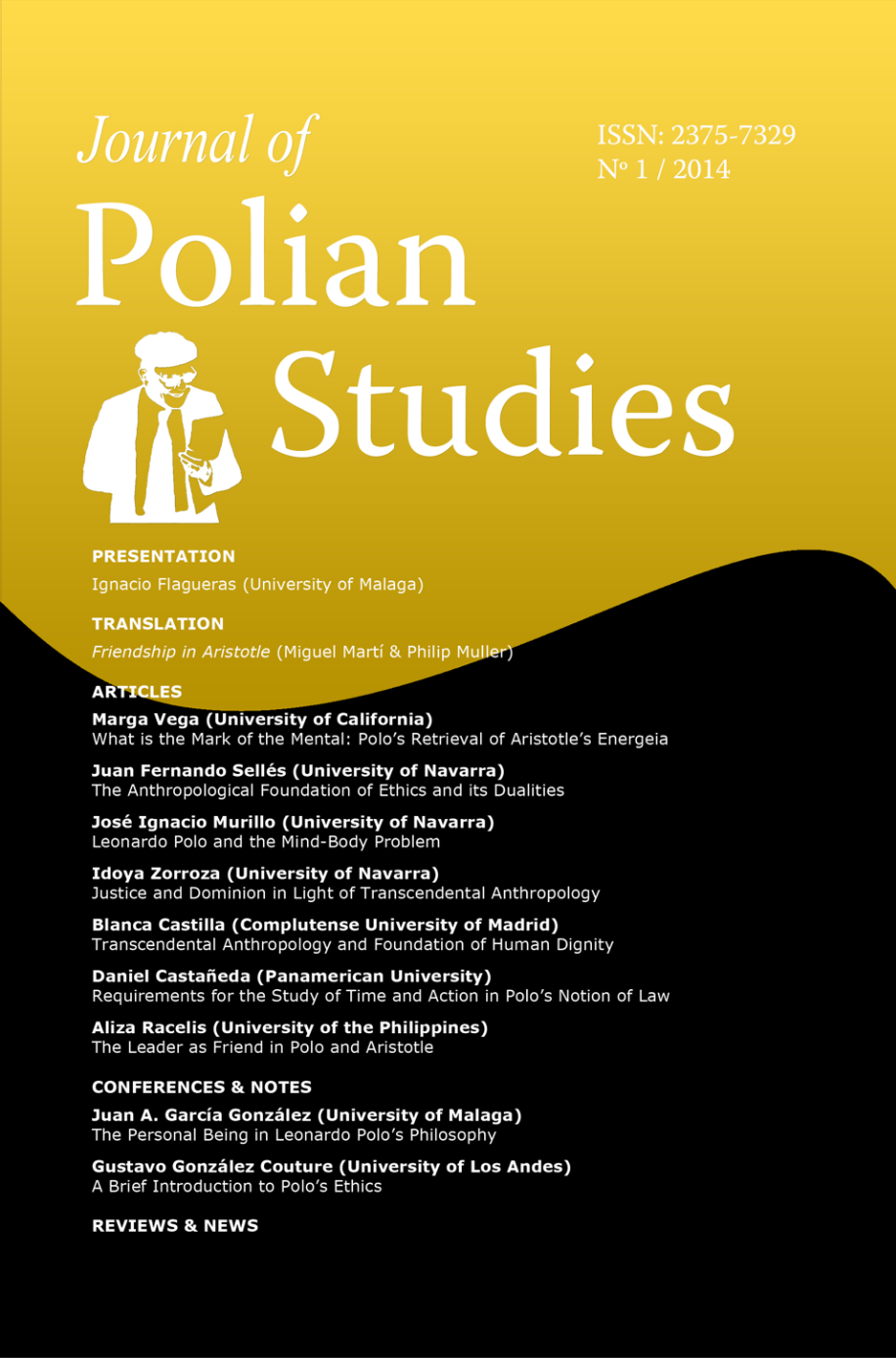The Leader as Friend: Implications of Polo's Friendship in Aristotle for Humanistic Corporate Governance
Keywords:
leader, leadership, governance, Aristotle, Leonardo Polo, Pérez López, corporate, cardinal virtues, business ethics, businessAbstract
This paper endeavors to show that Polo's essay on Aristotle's notions of friendship in his Amistad en Aristóteles has important implications for humanistic corporate goverance, in particular through Polo's discernment of the nature and virtues of friendship as they may relate to leadership. Concretely, one can draw those virtues that are natural to him as a human being and as an authentic friend, which at the same time accompany his transcendental leadership of self-gift and service to others. Firstly, there are the chief moral virtues ―or the cardinal virtues― of: (1) prudence, (2) justice, (3) fortitude, (4) temperance. In addition, there are the virtues of: (5) humility, (6) veracity, and (7) love, or charity. It is hoped that, by highlighting these characteristics of a true friend contained in Amistad en Aristóteles ―especially the superiority of Christian charity over the natural friendship notions of Aristotle―, we have provided clear indications for how the authentic friend-leader turns out to be the ideal moral leader who will bring about that much-desired human flourishing in organizational members and, by extension, successful business outcomes. The assertion here is that "transcendental leadership", i.e. leadership by way of transcendent motives (in addition to extrinsic and intrinsic motives), whereby the leader makes himself have a genuine interest in the development of and in contributing to the good of the follower, has tremendous potential for a better organizational functioning.


